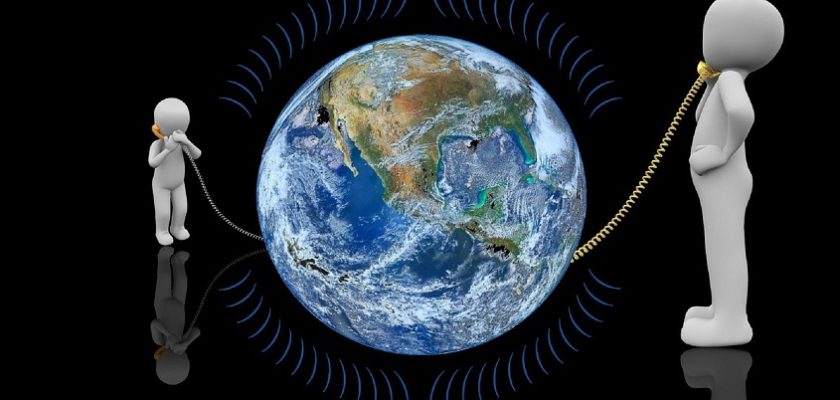The Impact of Technology on Modern Relationships and Communication
- Updated on: May 7, 2025
- Published on Jan 30, 2023

Technology and its role in modern relationships and communication
Technology has had a significant impact on modern relationships and communication. On one hand, technology has made it easier to stay connected with loved ones and communicate with people all over the world. Video conferencing and instant messaging have made it possible to maintain long-distance relationships and have face-to-face conversations with people in different time zones. Additionally, social media platforms allow people to stay connected with friends and family members, even if they are physically separated.
On the other hand, technology has also had a negative impact on relationships and communication. Increased screen time can lead to decreased face-to-face interaction, and people may become overly dependent on technology to communicate with others, leading to social isolation. Additionally, cyberbullying and online harassment are becoming increasingly common problems, particularly among younger generations.
In healthcare, technology has revolutionized how healthcare professionals interact with patients, Telemedicine and electronic health records have improved the speed and quality of care, but also healthcare professionals are facing the need to adapt to patients that are more dependent on technology to communicate and get information, and to help them to use technology in a way that promotes positive relationships and communication.
Positive Impact of Technology on Relationships and Communication
Technology has had a positive impact on relationships and communication in several ways. One of the main benefits is increased connectivity and accessibility. With the use of smartphones, tablets, and other devices, people can stay in touch with friends, family, and loved ones no matter where they are. Video conferencing and instant messaging platforms like Zoom, Skype, and WhatsApp have made it possible for people to have face-to-face conversations and maintain long-distance relationships.
Technology also has improved communication, allowing people to share information, ideas, and thoughts more easily and quickly than ever before. Social media platforms like Facebook, Twitter, and Instagram have made it possible for people to connect with others who share similar interests or experiences. This has led to the formation of online communities and support groups that can provide people with a sense of belonging and connection.
Additionally, technology has made it easier for people to access information and resources, which can be beneficial for their mental and physical health. For example, telemedicine, which is the use of technology to provide medical care remotely, has made it possible for people to receive healthcare services without having to travel to a physical location.
Overall, technology has had a positive impact on relationships and communication by making it easier to stay connected, communicate, and access information and resources.
Negative Impact of Technology on Relationships and Communication
Technology has also had a negative impact on relationships and communication. One of the main negative effects is the decrease in face-to-face interaction. People may spend more time communicating with others through digital devices rather than in person, which can lead to a lack of social skills and emotional intelligence.
Another negative impact of technology on relationships and communication is the increased dependence on technology to communicate with others. People may become overly reliant on digital devices and the internet, leading to social isolation and loneliness. This can be particularly problematic for people who already struggle with mental health issues such as anxiety and depression.
Cyberbullying and online harassment are also becoming increasingly common as a result of technology. These behaviors can have serious consequences for the mental and emotional well-being of the victims.
Technology can also make it more difficult for people to have meaningful conversations, as people tend to multitask while communicating through digital devices, which can lead to misunderstandings and lack of attention.
Healthcare Professionals and Technology
Technology has had a significant impact on healthcare, and healthcare professionals have had to adapt to new technologies in order to provide the best care for their patients.
One of the most significant ways technology has impacted healthcare is through telemedicine, which is the use of technology to provide medical care remotely. Telemedicine allows healthcare professionals to see and consult with patients remotely, through video conferencing or other digital means. This can be especially beneficial for people living in rural areas or for those who have mobility issues and find it difficult to travel to a physical location for care.
Another way technology has impacted healthcare is through the use of electronic health records (EHRs). EHRs allow healthcare professionals to access and share patient information more easily and quickly, improving the speed and quality of care. This can also help to prevent medical errors and improve communication between healthcare professionals.
Healthcare professionals also have to adapt to patients that are more dependent on technology to communicate and get information. They have to help them to use technology in a way that promotes positive relationships and communication. They have to also be aware of the negative impact of technology on their patients, such as social isolation, cyberbullying, and online harassment, and help them to mitigate these negative effects.
Overall, technology has had a significant impact on healthcare, and healthcare professionals have had to adapt to new technologies in order to provide the best care for their patients. They have to be aware of the positive and negative impact of technology on the patient-doctor relationship and communication and use it in a way that promotes positive outcomes.


